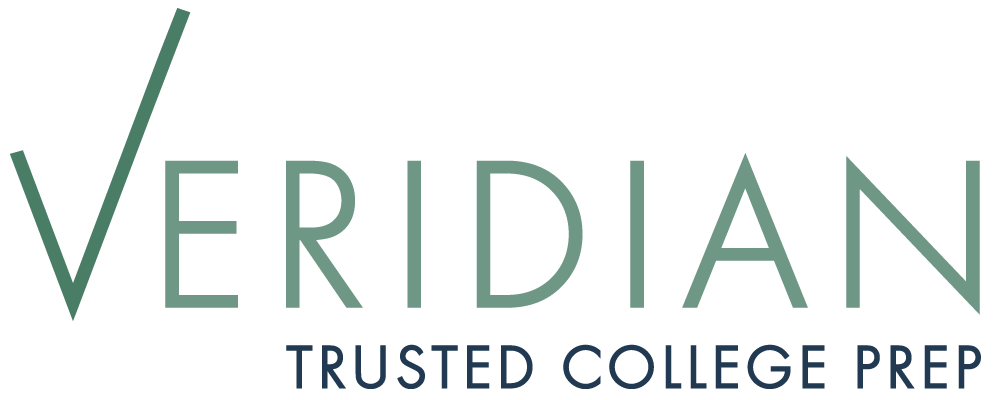Can Family Meals Boost Test Scores?
by Valerie Erde
Research suggests that family meals benefit children and teens in a number of important ways - including better mental health, lower substance abuse, and…stronger academics.
During the pandemic, most of us were suddenly able to spend a lot more quality time with our families. Of course, not every day was fun, but there’s definitely something to be said for being able to have longer, deeper conversations with your kids. Without the pressure of running from school to sports to lessons, there was suddenly time to enjoy some leisurely meals — and the chats that go along with them.
As we now find ourselves returning to our old busy schedules, it may be worth trying to hold on to family meals. The academic research suggests that it’s highly beneficial to language arts development and for children and teen’s mental health. Spending this time together strengthens bonds and is linked to better mental health outcomes for teens, including reduced rates of anxiety and depression.
It also turns out that the conversation you enjoy during those family meals can actually help improve certain literacy skills that will make your children better readers — and, by extension, better test takers when it comes time for the SAT or ACT. By conversing regularly with adults, children develop a richer vocabulary and important background knowledge for better reading comprehension.
Conversation Aids Vocabulary Development
When kids and teens engage in conversation with adults about business, current events, science, sports the arts, etc., they are exposed to a wide range of vocabulary that they aren’t likely to encounter in chats with their friends — or even in the classroom.
Vocabulary development starts in infancy, and it’s not just about the number of words that children are exposed to (though this is also important). It’s also about the quality of the conversation. Conversation isn’t just talking at kids, but rather engaging them in a two-sided give and take. That involves asking questions, listening to answers, and responding to what was heard to build upon those ideas. Researchers have found that the exchange of words combined with the social interaction is responsible for helping develop neural pathways.
Vocabulary development doesn’t stop in early childhood — it’s a lifelong process. Older children and teens can also benefit from best practices when it comes to boosting vocabulary:
Hearing new words in a meaningful context
Providing feedback on how and when to use new words
Offering opportunities to use new words in conversation
Using vocabulary in conversations with adults
These methods are far more effective than studying lists of words and their definitions, so this is one case in which your input as a parent will have more weight than just having your child hit the books. Specifically, Anne Fischel, Executive Director of the Family Dinner Project, points out that “the organic language that happens around the dinner table turns out to have 10 times as many rare or uncommon words embedded in those conversations” when compared to the language typically heard among peers. In a fascinating conversation on Harvard EdCast, she also cites research that shows high schoolers with regular family dinners get better grades overall.
Conversation Also Widens Background Knowledge
Fluent reading takes more than just the ability to sound out words and a knowledge of their definitions. When it comes to understanding what we’ve read, background knowledge is crucial. Prior experience with a subject creates a crucial scaffold on which to add new information in a way that can be decoded and understood. If there are too many gaps in that scaffold, the whole thing comes crashing down. Recent studies suggest that there's a knowledge threshold required to be able to understand a reading passage: If students know less than 59% of the background information referred to in a text, they are unlikely to understand what they’ve read.
To understand how this works, literacy expert Daniel Willngham reminds us that writers leave out all kinds of facts and information that they assume a reader knows. For example, consider the following short text (excerpted from Oakhill and Cain, 2016):
Johnny carried a jug of water. He tripped on a step. Mom gave him a mop.
Inference: Johnny spilled the water when he tripped.
Background knowledge needed: experience with spills and the mess they make
In order for readers to understand what happened here, they need to know what could cause a spill and what happens when you drop a water jug. This is a very simple example, but imagine how much more complex issues of background information become when a teen needs to know about a historical time period or facts about dinosaurs to understand a complex reading passage.
Especially after a year of some significant learning losses, your child may not have the background information expected on standardized tests or by future college professors. The world is still working through what that all means, but for now, you can help to fill in the gaps with wide-ranging and interesting conversations.
The Implications For Standardized Testing
It’s simply not possible for teens to learn the background about everything that might come up in a reading passage on the SAT or ACT, but you can focus on things that are likely to be included. When I work with students on ACT and SAT reading sections, I know that passages are primarily non-fiction and cover a vast array of topics.
ACT/SAT Reading Covers A Wide Array Of Non-Fiction Subjects
Neuroscience/Cognitive Science (e.g. London taxi drivers’ brains)
Solar Energy ( bionic” leaves, effect on cost of solar)
Organic vs. conventional farming scalability & costs
How humor affects work productivity
Bees and colony collapse’s impact
New fossil discoveries and Viking ships
Physics: string theory
Oklahoma! (new productions of the musical)
Abolition, women’s suffrage, England vs. the colonies…
Apartheid in South Africa*
*Believe it or not, 75% of my students did not have the background knowledge to know what apartheid even was, so I have seen first-hand how lacking background information can make success in reading difficult. You can make a real difference by bringing up newsworthy topics for discussion!
Additionally, the ACT and SAT test creators have been working to become more inclusive, and this translates to literature passages by writers of varied ethnicities and cultural backgrounds. Here are some current examples:
Amy Tan (Chinese American)
Salman Rushdie (Iranian American)
Helen Oyeyemi (Nigerian British)
Christina Henriquez (Panamanian American)
Jhumpa Lahiri (Indian American)
Understanding at least a little about other cultures — their influences, differences, and challenges — will make it easier to figure out what’s going on in a short passage. This is especially important in a testing situation, in which students don't have the luxury of reading the entire book or short story. They're thrust into the middle of the action and have to muddle through.
Advice for Busy Families
Now, let’s get real. You may not have time for a full sit-down dinner every night. You may work late, your kids have sports, and exhausted teens would rather sleep in on the weekends than join you for Sunday brunch. So what can families do?
First, let yourself off the hook for the traditional family dinner and focus on finding time together. It’s great if that can include eating, but it doesn’t have to. If you find yourself in the car a lot, turn off the radio, have the kids put their phones away, and turn it into talking time.
If you developed the habit of taking walks or bike rides together during the pandemic, this is also an excellent time to devote to conversation.
Cook together — or clean, fold laundry, or wash the dog. Instead of heading in separate directions to tackle household chores, try turning them into a shared activity. Conversation while you work will make the time go faster, and you’ll enjoy mundane tasks much more.
Tara Parker Pope of the New York Times also has some good advice for making the most of various meal times. If you’re super pressed for time, try a late-night snack that catches everyone when they’re finally home for the day and ready to downshift into relaxation time. A weekend afternoon diner run or trip to the local ice cream stand could also be a fun way to add some talk time into a busy schedule.
No matter how you schedule it, try to make time in your and your child’s day/week for some regular conversations and feel free to bring up a wide range of topics. You may be inspired by a podcast, news item, museum exhibit, or even a workplace event. And don’t forget to let your kids lead the way with their own topics of interest to keep them engaged — you can all learn from each other.
Additional Reading
How To Have Better Family Meals, The New York Times, Tara Parker Pope
Family Meals and Child Academic and Behavioral Outcomes, Child Development, November 2012
How To Get Your Mind To Read, The New York Times, by UVA Professor Daniel Willingham (Valerie’s reading comprehension idol!)

